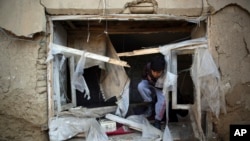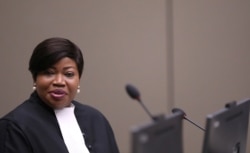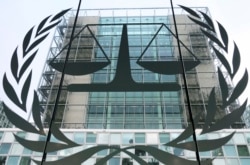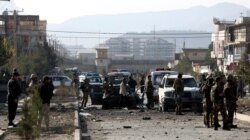The International Criminal Court (ICC) ruled Thursday that an investigation can go ahead into war crimes and crimes against humanity allegedly committed by the United States and other warring parties to the conflict in Afghanistan
The global court in the Hague overturned an April 2019 rejection of the probe.
“The Appeals Chamber considers it appropriate to amend the appealed decision to the effect that the prosecutor is authorized to commence an investigation into alleged crimes committed on the territory of Afghanistan since May 1, 2003,” Presiding Judge Piotr Hofmanski said.
The ruling will allow ICC Prosecutor Fatou Bensouda to examine the actions of U.S. armed forces and members of the CIA, the Taliban insurgency, Afghan government security forces and other armed groups operating in Afghanistan.
Bensouda has been seeking a formal investigation into the alleged crimes since 2017.
Washington is not a signatory of the ICC and disputes its authority over American citizens. Afghanistan, however, is a member of the global court.
U.S. Secretary of State Mike Pompeo said last year that the Trump administration would revoke or deny visas to ICC staff seeking to investigate alleged war crimes and other abuses committed by U.S. forces in Afghanistan or elsewhere.
The Afghan government has also opposed the investigation.
Thursday’s ICC ruling came just days after the United States and the Taliban signed a landmark agreement to try to bring an end to the Afghan war, now in its 19th year.
Rights groups welcome ruling
Afghan and global rights groups hailed the ICC for upholding the rights of victims to accountability, and paving the way for the United States to be held to account for the first time for its actions.
"ICC Appeals Chamber’s decision to green-light an investigation of brutal crimes in Afghanistan despite extreme pressure reaffirms the court’s essential role for victims when all other doors to justice are closed,” noted Param-Preet Singh, associate international justice director at Human Rights Watch.
The Afghanistan Independent Human Rights Commission (AIHRC) welcomed Thursday’s decision as an “important step for justice in Afghanistan.
”Today, the International Criminal Court breathed new life into the mantra that ‘no one is above the law’ and restored some hope that justice can be available — and applied — to all,” said Katherine Gallagher, senior staff attorney at the Center for Constitutional Rights (CCR) and ICC Victims Legal Representative.
“In authorizing this critical and much-delayed investigation into crimes in and related to Afghanistan, the Court made clear that political interference in judicial proceedings will not be tolerated,” noted Gallagher.
A 2016 ICC report focusing on Afghan hostilities concluded there was a reasonable basis to believe that the U.S. military, Afghan government and the Taliban committed war crimes.
Prosecutor Bensouda alleged while arguing before the judges last year that members of the U.S. military and intelligence agencies “committed acts of torture, cruel treatment, outrages upon personal dignity, rape and sexual violence against conflict-related detainees in Afghanistan and other locations, principally in the 2003-2004 period.”
She said the Taliban and other militant groups have killed thousands of Afghan civilians since 2009 in attacks, including targeted killings. The report blamed Afghan security forces for allegedly torturing prisoners at government detention centers.
At a hearing before the Appellate Chamber in December, the Afghan government said it objected to the investigation and has set up a special unit to investigate war crimes.
There was no official U.S. delegation at the hearing, but President Donald Trump’s personal lawyer, Jay Sekulow, appeared on behalf of the European branch of the American Center for Law and Justice and told judges that the U.S. position wouldn’t change.
He told appeals judges that “it is not in the interests of justice to waste the court’s resources while ignoring the reality of principled non-cooperation.”








